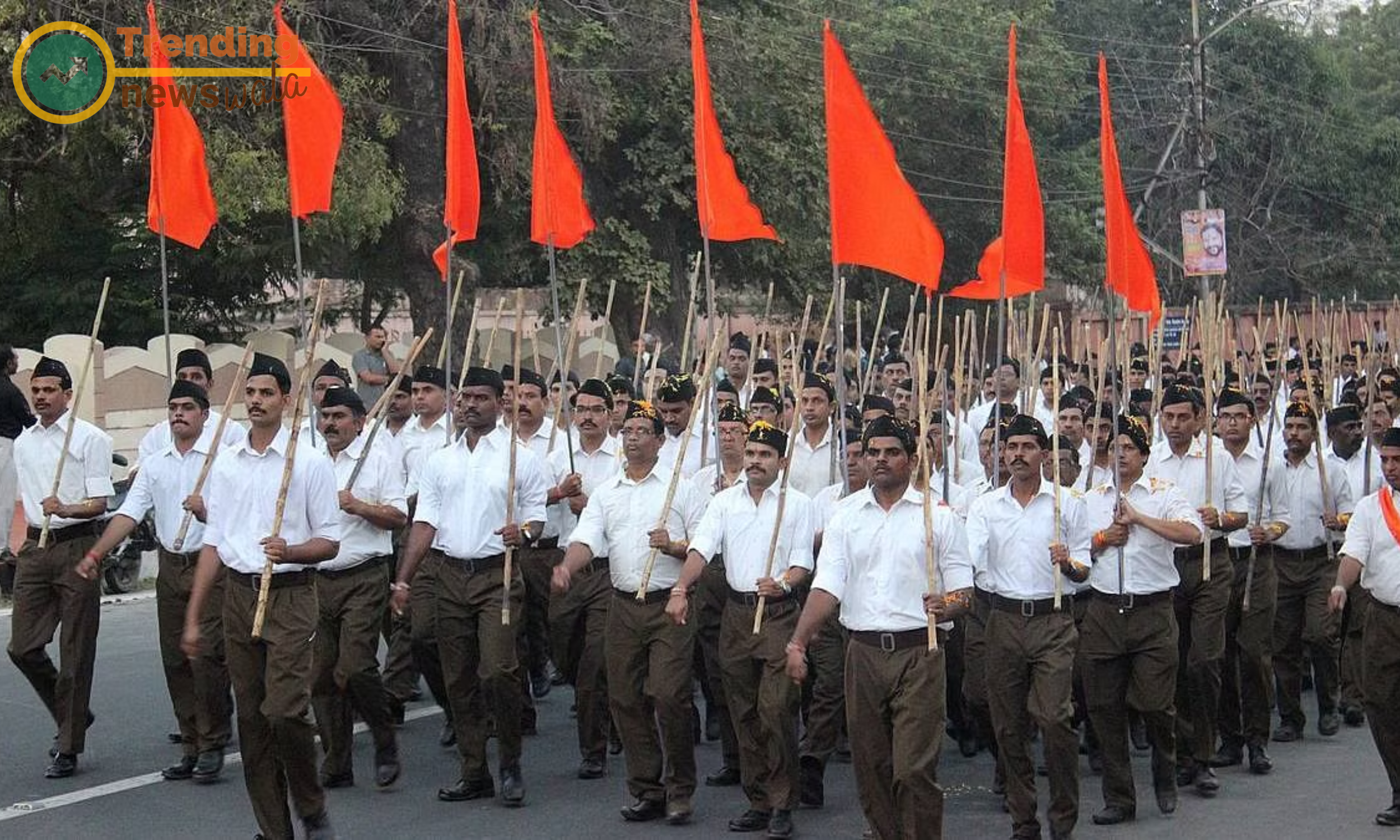How to Join RSS for the Hindu Nation: A Step-by-Step Guide
RSS for the Hindu Nation, an opportunity to connect with cultural roots and contribute to the ethos of Hindutva. Discover the process and engage
RSS for the Hindu Nation, an opportunity to connect with cultural roots and contribute to the ethos of Hindutva. Discover the process and engage

The Rashtriya Swayamsevak Sangh (RSS) is a prominent socio-cultural organization in India, deeply rooted in the ideology of Hindutva, which emphasizes the cultural and national unity of Hindus. Founded in 1925 by Dr. Keshav Baliram Hedgewar, the RSS aims to strengthen the Hindu community and promote the vision of a Hindu Rashtra (Hindu Nation). If you’re inspired by its mission and want to contribute to this cause, joining the RSS is a meaningful way to get involved. This article provides a detailed, step-by-step guide on how to join the RSS, its objectives, eligibility, and what you can expect as a member.

Origins and Objectives of RSS, How To Join RSS for the Hindu Nation
Before diving into the process of joining, it’s essential to understand what the RSS stands for. The Rashtriya Swayamsevak Sangh, often simply called the Sangh, was established with the goal of uniting Hindus and reviving India’s cultural heritage. Its vision of a Hindu Nation is not just about religion but about fostering a sense of national pride, discipline, and service rooted in Hindu values. The RSS operates through a vast network of "Shakhas" (local branches) and inspires millions to work toward a strong, self-reliant India.
The organization’s core philosophy revolves around "Hindutva," a term coined by Vinayak Damodar Savarkar, which defines Indian identity through its cultural and historical ethos. The RSS believes in organizing society, promoting unity, and safeguarding India’s traditions while contributing to its progress. Whether you’re a student, professional, or someone passionate about nation-building, joining the RSS offers an opportunity to align with this vision.
One of the most appealing aspects of the RSS is its inclusivity within the Hindu community. There are no strict eligibility criteria like age, profession, or educational qualifications. Here’s a breakdown of who can join:
There’s no formal membership fee or complicated registration process, which makes it accessible to anyone willing to contribute time and effort.

Organizational Structure, How To Join RSS for the Hindu Nation
Joining the RSS is straightforward, as the organization prioritizes personal engagement over bureaucratic formalities. Here’s how you can become a part of it:
Before joining, familiarize yourself with the RSS’s goals and activities. Read about its history, Hindutva ideology, and contributions to society. The official RSS website (rss.org) and books like Bunch of Thoughts by M.S. Golwalkar can provide deeper insights. This understanding will help you align with the organization’s vision of a Hindu Nation.
The Shakha is the heart of RSS activities. These are daily gatherings held in local neighborhoods, parks, or community spaces where members, known as Swayamsevaks (volunteers), meet for an hour. To join, find a Shakha near you:
Once you’ve identified a Shakha, attend a session. There’s no need for prior registration—just show up! Shakhas typically occur in the early morning or evening and last about an hour. Here’s what to expect:
Introduce yourself to the Shakha in-charge (Mukhya Shikshak) or other members. They’ll warmly welcome you and guide you through the process.
Consistency is key to becoming a Swayamsevak. Start attending Shakha sessions daily or as often as your schedule allows. Over time, your participation will deepen your connection with the RSS community and its mission.
The RSS emphasizes selfless service (Seva) as a way to contribute to society and the Hindu Nation. You’ll have opportunities to participate in activities like disaster relief, education programs, and community welfare projects. Engaging in Seva strengthens your role within the organization.
For those unable to attend a Shakha immediately, the RSS offers an online “Join RSS” form on its website. While this doesn’t replace physical participation, it’s a way to express interest and stay updated on RSS events and Shakha locations.
Once you start attending Shakhas, you’ll become a Swayamsevak—a volunteer dedicated to the RSS’s cause. Here’s what you can expect:
The RSS also organizes camps, workshops, and events like the Sangh Shiksha Varg, where Swayamsevaks receive advanced training in its ideology and practices.

Cultural and Moral Education, How To Join RSS for the Hindu Nation
By joining the RSS, you contribute to its vision of a united, culturally vibrant Hindu Nation. Here are some benefits:
Joining the RSS is more than just becoming a member—it’s about embracing a lifestyle of service, discipline, and dedication to the Hindu Nation. Whether you’re motivated by cultural pride, national unity, or a desire to contribute to society, the RSS offers a platform to make a difference. Start by finding a Shakha near you, attending a session, and immersing yourself in its activities. Your journey as a Swayamsevak could be the first step toward building a stronger, united India.
Ready to join? Visit rss.org today and take the first step toward becoming part of this historic movement!

Faq For How To Join RSS for the Hindu Nation
The Rashtriya Swayamsevak Sangh (RSS) is a socio-cultural organization in India that was founded in 1925. It stands for promoting the idea of Hindutva, emphasizing the cultural and national unity of Hindus.
To join the RSS, you can locate the nearest RSS Shakha (branch) in your area and express your interest in participating. The RSS conducts regular meetings and activities at these Shakhas, providing an opportunity for individuals to become members.
RSS Shakhas conduct various activities, including physical exercises, drills, discussions on cultural and national topics, and moral education. These activities aim to foster a sense of discipline, character-building, and a connection to Hindu cultural values.
The RSS is open to individuals of Hindu faith, and there is generally no strict eligibility criteria. People from different backgrounds, professions, and age groups are welcome to participate in RSS activities.
RSS is known for not charging any formal membership fees. Participation is voluntary, and individuals contribute to the organization based on their willingness and capacity.
Joining the RSS is a personal choice, and it is not mandatory for advocating Hindu nationalism. The RSS represents a specific socio-cultural perspective, and individuals may choose various ways to express their commitment to Hindu values.
While the primary focus has been on male participation, there are affiliated organizations like the Rashtriya Sevika Samiti that cater specifically to women. Women can actively participate in these organizations to contribute to the broader Hindutva ideology.
The RSS is not a political party, but it has affiliations with several organizations that are active in politics. Joining the RSS does not necessarily mean direct involvement in politics, although individuals may choose to participate in affiliated political organizations.
While the RSS primarily operates in India, there are affiliated organizations and branches in various countries. These international branches often focus on cultural and community activities rather than direct involvement in Indian politics.
The RSS aims to be inclusive and is not limited to any specific caste or community. It welcomes individuals from all backgrounds who identify with the cultural and nationalistic values it promotes.
Writer and content creator
Log in to share your thoughts and engage with other readers.